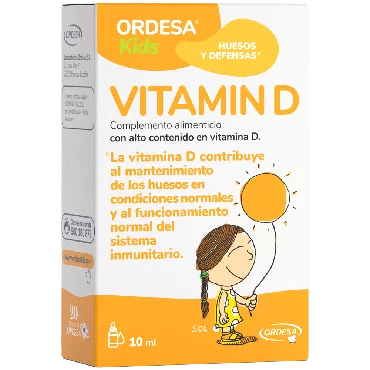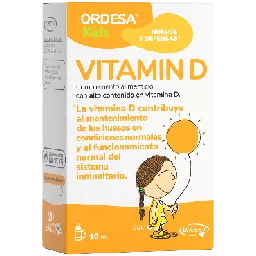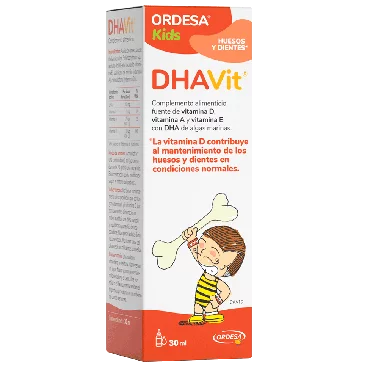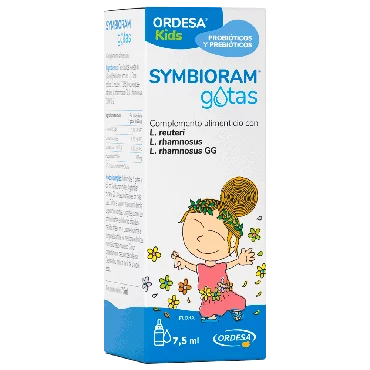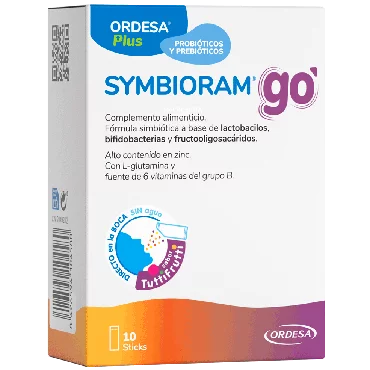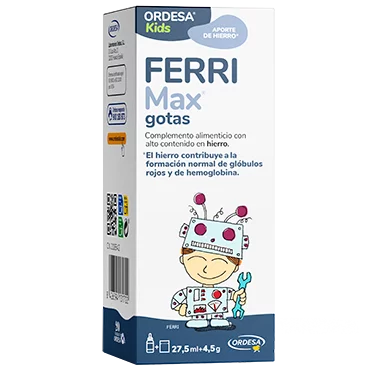Features
Vitamin D is essential for the absorption and maintenance of correct levels of phosphorus and calcium, minerals that are involved in the formation and maintenance of bone structures in the body, such as bones and teeth.
What are the sources of vitamin D?
90% is obtained from the sun's rays that bathe our skin (cutaneous synthesis), and 10% comes from food.
It is especially found in foods of animal origin such as oily fish (salmon, mackerel, herring, sardines), egg yolk, different organ meats or whole dairy foods.
Food supplements with a high content of vitamin D.
An adequate supply of vitamin D is especially important in two periods considered critical in obtaining peak bone mass (maximum bone mineralization): the childhood stage (0-3 years) and adolescence.
On the other hand, although the main function of vitamin D is the maintenance of adequate calcium levels, it is also known that it intervenes in other functions related to cell growth, the vascular system and the normal functioning of the immune system.
In recent years, vitamin D deficiency among the general population and more significantly in pediatric age is increasing. Lack of sun exposure, the use of UV filters in sunscreens and sometimes inadequate intake during the first months of life are some of the causes.
To prevent possible deficiencies of this nutrient, more and more international organizations recommend supplementing the diet with vitamin D, especially in the case of babies:
- Premature babies: It is recommended to supplement the diet with vitamin D since the body reserve of premature babies is lower than that of full-term babies.
- Babies fed with breast milk and formula: The Spanish Association of Pediatrics recommends supplementing with 400 IU daily to infants under one year of age who are exclusively breast-fed or who drink less than 1 liter of infant formula per day.
- Children and adolescents: In cases of vitamin D deficiency, and when diet and sun exposure are not sufficient, supplementation is also recommended.
- Adults in general: Although we live in a country with sunshine, an increasing vitamin D deficiency is detected in the population. In these cases, it is recommended to review the diet and increase sun exposure. Ultimately, supplements can also be taken.
In those cases in which the synthesis of vitamin D from sun exposure together with food is not sufficient to cover the needs of this vitamin, either due to reduced intakes or increased organic needs, the use of food supplements with a high content in this compound it can be useful.
Food supplements should not replace a varied and balanced diet and a healthy lifestyle.
Do not exceed the recommended daily dose.
Keep out of the reach of little kids.
Instructions
Vitamin D drops is a food supplement with a high content of vitamin D intended to ensure an adequate supply of this vitamin in case of deficiency states due to reduced intakes or increased organic needs.
Warnings
Keep out of the reach of children.
Do not exceed the recommended daily dose.
Once the bottle is opened, consume within a maximum of six months.
Keep in a cool and dry environment, protecting it from light and heat.
This product is a food supplement and does not replace a varied and balanced diet.
Do not take together with other products containing vitamin D.
Ingredients
Refined Olive Oil, Cholecalciferol (vitamin D3), Extract rich in tocopherols (antioxidant).
Dosage
Administer according to nutritional needs and criteria of the health professional:
- 1 drop provides 200 IU of vitamin D
- 2 drops provide 400 IU of vitamin D
- 3 drops provide 600 IU of vitamin D
Format
10 ml vial.
CN: 193709.4
